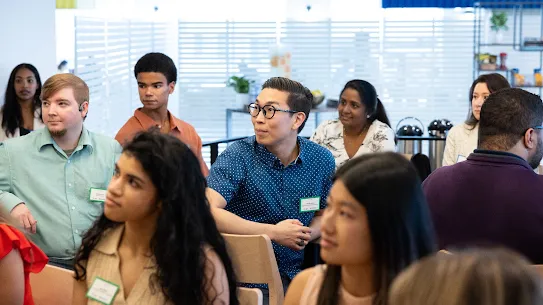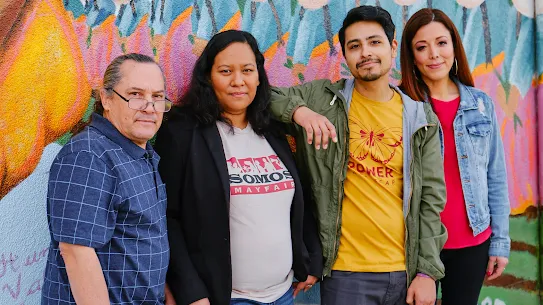Foundational Science
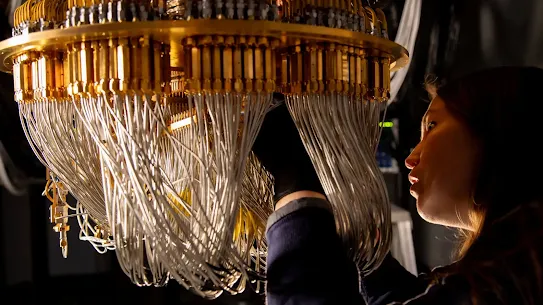
Supporting advances in quantum computers
By funding research partners like the University of Chicago and the University of Tokyo, the Google Quantum AI team is advancing the development of a fault-tolerant quantum computer by supporting research, entrepreneurship, and workforce training.
Fostering research collaboration
We support researchers to foster an ecosystem that generates impactful research with real-world applications.
Applied Science
Helping responders detect wildfires earlier
FireSat is supported in part by the AI Collaborative: Wildfires – an initiative to reduce the impact of catastrophic fires by uniting public, private, and nonprofit organizations with researchers to create AI-powered solutions. FireSat’s AI-powered satellite system is delivering high-resolution imagery every 20 minutes to help responders detect wildfires earlier.
Bringing organizations together across sectors
AI’s potential to address complex, global issues can be realized faster through collaboration and innovation. We share insights, identify challenges, and combine expertise to accelerate the development of impactful AI applications.
Helping organizations build AI-powered solutions
Through funding, structured pro bono support, technical training, and access to Google tools, we are helping organizations build socially impactful AI-powered solutions in domains such as climate, society, and health.
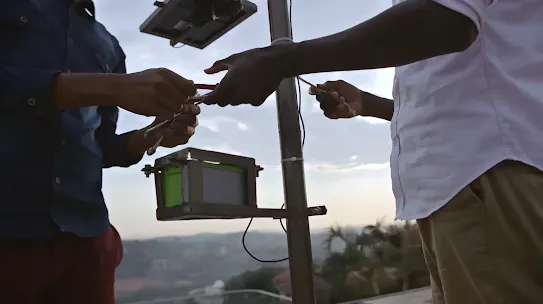
Using air air monitors and AI to improve lives
AirQo, a Google AI Impact Challenge winner, is helping to improve the lives and air quality for millions across Africa by installing AI-powered monitors on modified taxis to identify the sources of air pollution and predict future air quality.
Meet organizations harnessing the power of genAI to accelerate their impact.
-
Accelerator Alumni
Materiom is tackling the climate crisis with an AI-powered tool designed to accelerate the transition from plastic to plant-based packaging.
-
Accelerator Alumni
Jacaranda Health is empowering 3.1M mothers across Kenya and Sub-Saharan Africa to seek timely care and using AI to triage questions.
Science Ecosystem
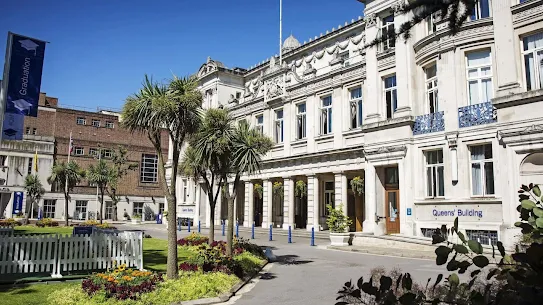
Supporting the next generation of researchers
For over 15 years, Google’s PhD Fellowship Program has supported promising graduate students from 50+ countries who are conducting foundational research in areas like AI, health, and climate. Fellows receive funding, mentorship, and access to Google’s research community to help accelerate their work.
Supporting Academic research worldwide
Google.org supports universities by connecting them to essential research infrastructure and resources, and by curating actionable scientific insights that inform policy decisions. This support, including PhD Fellowships, builds a pipeline of talent and ideas that will drive innovative research for societal benefit in areas relevant to computer science and future AI innovation.

This PhD fellowship significantly contributed to my career development through not only financial support, but also mentoring and networking. I learned about the application of machine learning in ways that my university lab could not offer. This experience greatly inspired my subsequent research.

